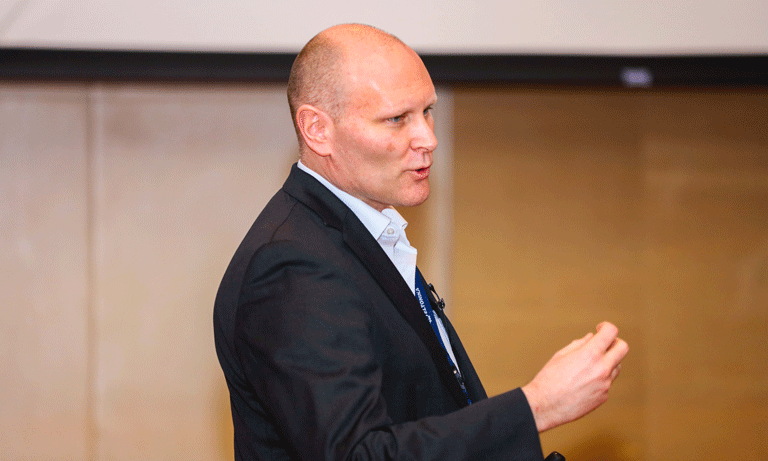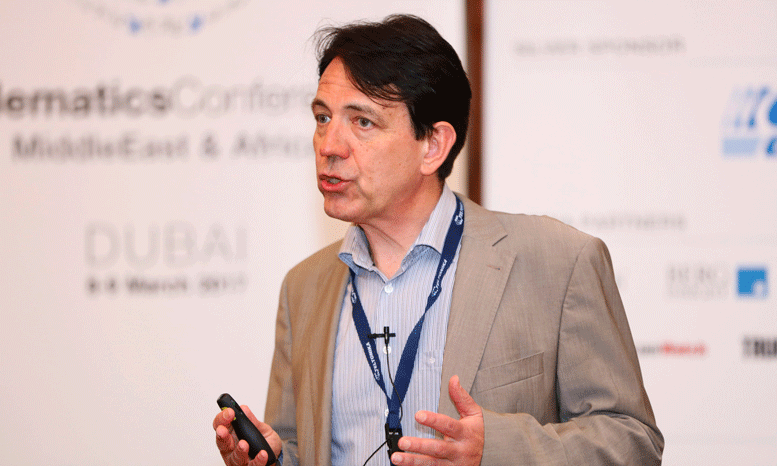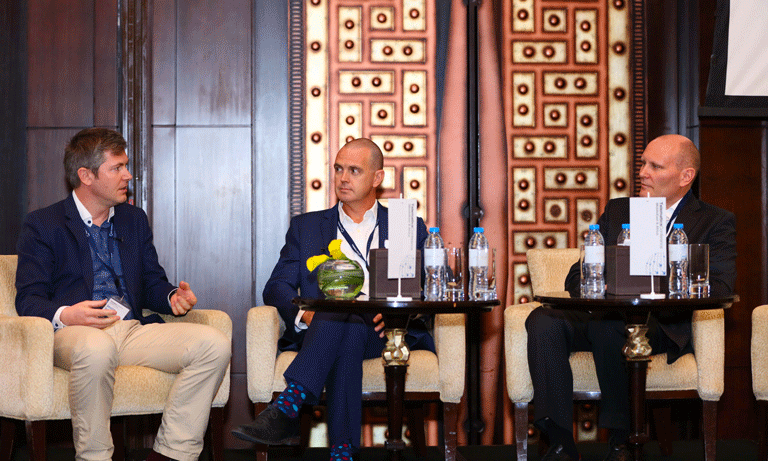Supplied content
The third global Telematics Conference Middle East & Africa was held in the Conrad Hotel Dubai at the beginning of March. This annual event welcomed more than 100 delegates. The main topics addressed connections between (commercial) telematics and the Internet of Things (IoT).
Conference website: www.telematics-conference.com/mea
The third edition of Telematics Conference Middle East & Africa delivered a 2-day event with high-profile speakers and decision makers from telematics companies from more than 20 countries from the region and elsewhere companies interested in Middle East and Africa telematics for fleet management and automotive segments. The conference offered many networking opportunities during the event, as well as a small exhibition showing the latest technology developments in the industry. Conference director Alenka Bezjak Mlakar welcomed all participants and announced the next, 4th edition of Telematics Conference Middle East & Africa, which will be held in Dubai on 2122 March 2018.
IoT = Business Revolution
IoT and commercial telematics are witnessing various adaptations and innovations, on a technological level as well as on segmentation and revenue levels. Keynote speaker Dominique Bonte, Managing Director and Vice President, B2B, at ABI Research, explained how the IoT delivers a business revolution: IoT is more than just connecting things; it’s about reorganizing the economy. IoT fosters new business models and enables cross-vertical, end-to-end services and solutions. In his presentation, Bonte presented many opportunities and synergies between commercial telematics and IoT. A new range of connectivity solutions allows for new use cases, and it goes beyond connectivity. In 2021, Bonte stressed, 68% of IoT technology revenues will come from applications, analytics and security (in comparison to 54% in 2015).

New Connectivity and Connectedness Opportunities in Telematics and IoT
Today, IoT and telematics offer many different connectivity and connectedness opportunities. One such opportunity was presented by Elie Aad, Director of Global Partnerships for MEA at Sigfox, who explained the advantages of using Low-Power Wide-Area Connectivity (LPWAN) in telematics. LPWAN technology is perfectly suited for connecting devices that need to send small amounts of data over a long range, while maintaining a long battery life, explained Aad and added that LPWAN can be used for any type of telematics application in all verticals, as long as the customer requirement is not hindered by technical & regulatory constraints.
Conference day 1 ended with an interesting panel discussion, moderated by Alexander Smirnov, Business Development Director, Middle East, at Gurtam. Panel guests Elie Aad, Director of Global Partnerships for MEA at Sigfox, and Dominique Bonte, Managing Director and Vice President, B2B, at ABI Research, discussed new solutions for establishing connectivity, with a special emphasis on the Middle East region. The discussion was not limited to the technologically most advanced solutions; it also addressed the simplest and cheapest IT solutions that promise the lowest costs and the longest battery life.
Telematics + Internet of Things Chunking is the Key
Stefan Schnitzler, Management Consultant at Mercedes-Benz Consulting and the keynote speaker of the second day of the event, raised many provocative questions in his presentation and gave participants a lot of food for thought. He calculated that 100 connected trucks submit 1.59 million data information per day and asked the audience: How do you handle this? In this pool of big data, it is not easy to bring the added value to the users. He added that all data is meaningless as long as the Magic Seven & Chunking are not taken into account. Small or big data do not create added value per se. Only humans do, the speaker continued. At the same time, it is necessary for all relevant industry stakeholders to educate, develop, enable and empower clients, employees, suppliers and leaders to create tangible added value through the marriage of telematics and the internet of things, Schnitzler emphasised.
The Need for Telematics to Adapt to New Trends in Automotive and Logistics Industries
The second panel discussion, moderated by Sebastian Stefan, CEO at Load-me.com, focused on the need for the telematics industry to adapt to new trends in automotive and logistics industries. Brent Melvin, Growth and Innovation Manager at Almajdouie Logistics, and Stefan Schnitzler, Management Consultant at Mercedes-Benz Consulting, highlighted the novelties that will transform the industry in the future.

The Advantages of Using IoT in Fleet Management
Mohammed Hasan Al Qrinawi, General Manager at Creation Heavy Equipment Trading, explained many advantages of using IoT in fleet management for end-users fleet owners. Al Qrinawi said that IoT technology has brought greater efficiencies and improvement to how businesses manage their fleets. Marek Pukel, Senior International Sales Manager at Ruptela, presented the practical application of IoT in fleet management and explained that we can all benefit from applying IoT solutions to fleet management, but that we will need to adapt and always be ready for the future and its uncertainty.
Creating the Right Environments to Enable Industry Development in IoT and Telematics
In his presentation, Alexander Smirnov, Business Development Director, Middle East, at Gurtam, exposed the need for choosing the right and complementary business partners in order to be able to develop in the future as an industry. The last speaker at the event, Denis Demianikov, Head of Global Business Development at Navixy, presented possibilities for creating opportunities for the rapid growth of telematics for the fleet management business. Demianikov explained that we must search for easy-to-use and scalable products, reduce support costs and minimize side expenses to offer affordable products, and we have to do more than meet our customers’ expectations we have to amaze people because only an environment like that will let us grow as an industry.
Where Will (Commercial) Telematics Go?
The closing panel discussion, moderated by Dominique Bonte from ABI Research, focused on the future of commercial telematics. Bassam Alkassar, Founder and CEO at FMS Tech, Hani Almaktoum, Co-owner and Business Development Consultant at Saferoad, and Elie Aad, Director of Global Partnerships for MEA at Sigfox, presented their views on the topic and interacted with audience members. Among other things, Alkassar described the trajectory of development from his past experience in creating the predecessor of the internet as we know it today, including the IoT. Almaktoum described the huge potentials of the Middle East region, and Aad stressed the need for finding solutions adaptable to local environments. At the end of the discussion, the guests emphasised the importance of focussing on Africa as well, which should be understood as a specific and very diverse market.
Supplied content



